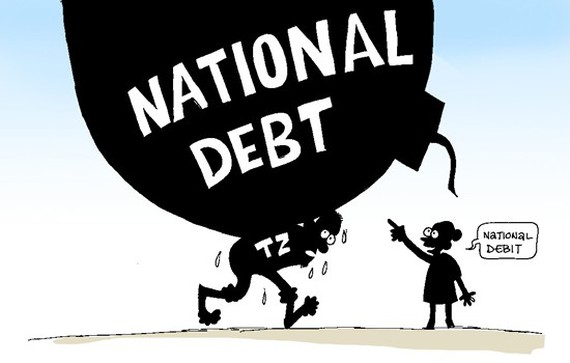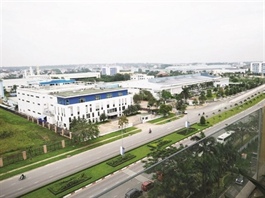Impending gloom of public debt to impact economy
Impending gloom of public debt to impact economy
The widespread global outbreak of the Covid-19 pandemic has stunned Vietnam's economy this year, which is being further eroded in unforetold ways by unexpected natural disasters such as drought, saline intrusion in the Southwest, and fierce storms and flooding in the Central regions.
Ảnh minh họa.
|
Notwithstanding, the GDP growth rate in the last nine months is still showing positive at 2.12%, even as most other countries in the world are facing negative growth.
The demand side of GDP includes final consumption, investment and the import-export gap. According to the Statistics Office, in the first nine months of 2020, final consumption decreased by 3%, which includes the final consumption of the population and the final consumption of the State. The final consumption accounted for a large proportion of GDP at 82%. The difference in export and import of goods and services only accounts for about 3% of GDP. The investment factor increased by about 5%, which was mainly due to the sudden increase in public investment in nine months by 13%, as compared to first nine months of 2018 and 2019 when investment capital growth was only 3%.
On the other hand, the growth of capital in the non-state sector in the first nine months of 2020 was only 2.8%, while growth in the first nine months of 2018 and 2019 had increased by 18% and 17%, respectively. The FDI sector investment capital growth was negative at 3.5%, while in 2018 and 2019 it was 9.1% and 8.4%, respectively. Thus, GDP growth in the last nine months based on public investment needs to be controlled as it can translate into high risk in coming years, such as through inflation or high public debt rate.
According to the White Book published by the Ministry of Planning and Investment on Vietnamese enterprises, the rate of return on capital in the state-owned enterprise sector is only 2.2%, much lower than bank interest rate. The ratio of added value to net revenue in the state-owned enterprises is only 12% and the ratio of liabilities to equity have increased from 3.1:1 in 2011, to 4.2:1 in 2018. Data from the General Statistics Office on investment capital and asset accumulation shows that the ratio between asset accumulation and invested capital is huge. If in 2010 this difference was 7%, in 2019 this was at 21%, showing that society money is intended to lower assets substantially.
Under this investment format, it will be difficult for the Government to repay debt. According to the 2020 budget estimate, the interest and principal payment of 24% of total revenue is relatively large. However, with the current effort to achieve GDP growth, this can lead to increased public debt. According to the report sent by the Government to the National Assembly on public debt in 2020 and expected debt in 2021, many challenges for 2021 and the coming period have been pointed out. Public debt in 2020 is expected to exceed VND 363,000,000 bn and the obligation to repay both principal and interest will be above VND 360,000 bn. With a population of about 97.5 million people in 2020, on an average each citizen carries the weight of VND 37 mn of public debt. In 2020, the ratio of foreign debt repayment obligations in exports were approximately 35%, nearly 10% higher than the level allowed by the National Assembly.
The 2021 budget estimate, and the budget allocation, submitted at the 10th session of the 14th National Assembly states that loans to offset any budget deficit will be almost VND 318,870 bn, and borrowings to repay the principal will be around VND 260,902 bn. However, the Government has to borrow almost VND 579,772 bn to balance the central budget and hence the public debt is set to exceed by VND 4,000,000 bn by 2021.
In the coming period, loan from the World Bank from July 2021, and from the Asian Development Bank from 2023, will be on fast repayment terms and short principal repayment terms, while ODA loans will gradually decrease and end in the next five years, leading to a shortage of long-term loans.






















